Originally posted on December 25, 2023 @ 6:25 am
Are you curious about how much food stamps you can receive in California? Understanding the amount of food stamp benefits you are eligible for is crucial for managing your food assistance and ensuring the well-being of yourself and your household. In this article, we will explore the California food stamp program, known as CalFresh, and provide you with the knowledge you need to determine your food stamp benefits. Let’s get started!
Table of Contents
Key Takeaways:
- California food stamp benefits are distributed through the Electronic Benefit Transfer (EBT) system.
- You can check your EBT account balance and transaction history using the EBT website or mobile app.
- Your EBT card can be used at authorized retailers, including grocery stores, supermarkets, and farmers’ markets.
- Protect your EBT card and personal information from theft or misuse by avoiding sharing sensitive details.
- CalFresh eligibility is determined based on factors such as household size and income.
Now that you have an overview of what to expect, let’s delve deeper into each topic to empower you with the information necessary to navigate the California food stamp program effectively.
How to Check Your EBT Account Balances and Transactions
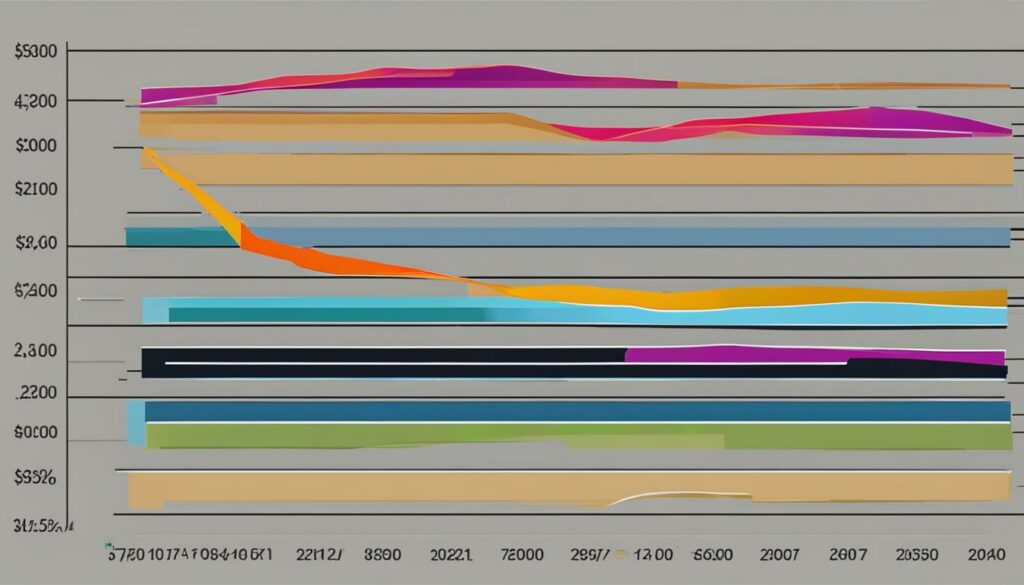
Managing and monitoring your EBT account is essential to stay on top of your food stamp benefits. Fortunately, checking your EBT card balance and reviewing transaction history in California is quick and easy. By utilizing the available online resources, you can ensure that your benefits are being used correctly and effectively.
Checking Your EBT Card Balance:
To check your EBT card balance in California, you have two convenient options:
- Visit the EBT website: Simply log in to the official EBT website and enter your EBT card number and PIN. This will provide you with the current balance on your card.
- Use the EBT mobile app: Download the EBT mobile application on your smartphone and follow the instructions to access your EBT account. The app enables you to check your balance anytime, anywhere, making it incredibly convenient.
Reviewing Your EBT Transaction History:
Keeping track of your EBT transaction history is crucial for budgeting and identifying any unauthorized or incorrect charges. Here’s how you can access your transaction history:
- Visit the EBT website: Log in to the EBT website using your EBT card number and PIN. Once logged in, you can navigate to the transaction history section to view a detailed list of your EBT card transactions.
- Use the EBT mobile app: Open the EBT mobile app on your smartphone and follow the prompts to access your EBT account. From there, you can easily review your transaction history and track your purchases.
By regularly checking your EBT card balance and reviewing your transaction history, you can ensure that your benefits are accurately reflected and being used for eligible food purchases. This proactive approach empowers you to make informed decisions and maintain control over your food stamp benefits.
Where Can You Use Your EBT Card in California?

Your EBT card provides a convenient way to access your food stamp benefits in California. Here are some of the places where you can use your EBT card:
Grocery Stores and Supermarkets
You can use your EBT card at authorized grocery stores and supermarkets across California. These establishments offer a wide range of food items, allowing you to purchase essential groceries to meet your dietary needs.
Farmers’ Markets
California is known for its vibrant farmers’ markets, where you can find fresh produce and locally sourced goods. The good news is that many farmers’ markets accept EBT cards, making it easier for you to access healthy and nutritious food options. Not only that, but some farmers’ markets also participate in market match incentive programs.
“Market match programs at farmers’ markets can increase the value of your EBT card, allowing you to get more fresh fruits and vegetables for your food stamp benefits.”
Farmers’ Market Market Match Incentive Program
The farmers’ market market match incentive program is designed to encourage EBT cardholders to shop at farmers’ markets. This program offers additional funds or vouchers that match a certain portion of your EBT card purchase. For example, if you spend $10 of your EBT funds at a participating farmers’ market, you may receive an additional $10 to spend on fresh produce.
To find farmers’ markets that accept EBT and participate in the market match program, you can refer to the list below:
| Farmers’ Market | Location | Market Match Program |
|---|---|---|
| San Francisco Ferry Building Farmers’ Market | San Francisco, CA | Yes |
| Alemany Farmers’ Market | San Francisco, CA | Yes |
| Grand Lake Farmers’ Market | Oakland, CA | Yes |
| Certified Farmers’ Market – Elk Grove | Elk Grove, CA | No |
| Old Town Auburn Farmers’ Market | Auburn, CA | No |
These are just a few examples, and there are many more farmers’ markets throughout California that accept EBT cards and offer market match incentives. Check with your local farmers’ market to find out if they participate in the program.
By utilizing your EBT card at farmers’ markets, you not only support local agriculture but also have the opportunity to access fresh and healthy food. Take advantage of the market match program to get the most out of your food stamp benefits.
Protecting Your EBT Card and Personal Information
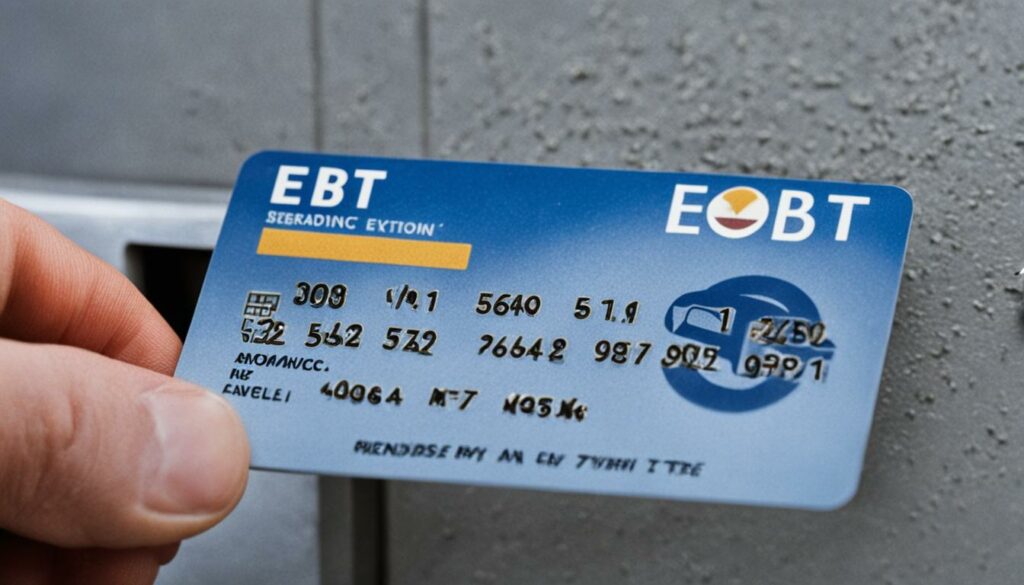
When it comes to your EBT card and personal information, taking necessary precautions is essential to prevent theft or misuse. By following some simple steps, you can safeguard your benefits and keep your personal information secure.
- Never share your EBT card number or PIN with anyone. The county or state will never call or text you asking for this information.
- If you suspect your benefits have been stolen or there is unauthorized activity on your account, immediately contact customer service or your local social services office. They can help you safeguard your benefits and investigate any potential fraudulent activity.
- Avoid sharing personal information, such as your Social Security number or date of birth, with anyone who does not have a legitimate need for it. Protecting your personal information is crucial in preventing identity theft.
- Regularly monitor your EBT account activity. Review your transaction history and balance regularly to ensure there are no unauthorized charges or suspicious activity.
By staying vigilant and taking proactive steps to protect your EBT card and personal information, you can minimize the risk of theft and misuse, keeping your benefits secure.
Eligibility and Income Limits for CalFresh
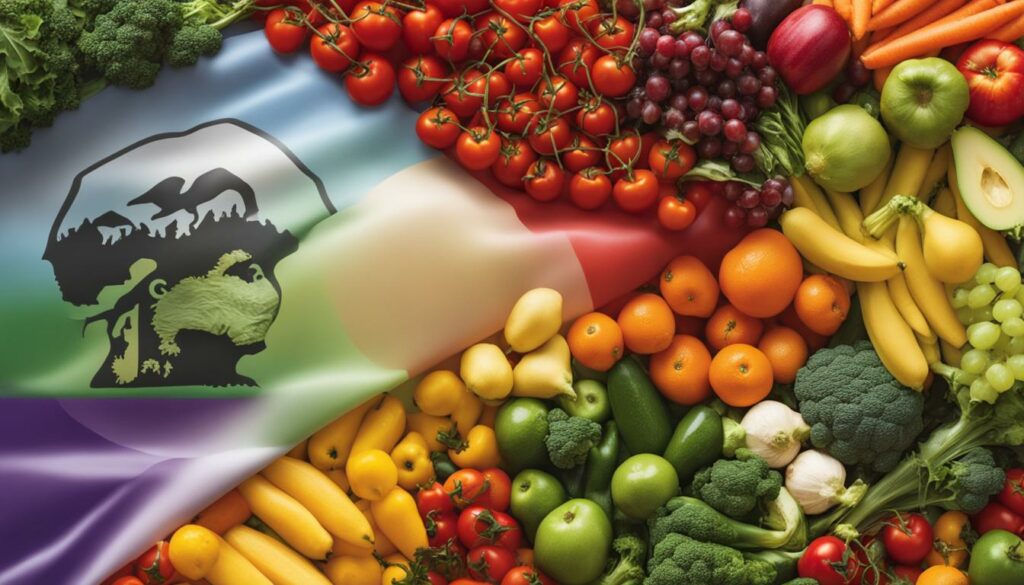
CalFresh is a government assistance program in California that provides nutrition benefits to eligible individuals and families. To determine eligibility, factors such as household size and income are taken into account. Here are the income limits and maximum monthly allotments for CalFresh benefits:
Income Limits for CalFresh
The gross monthly income limits for CalFresh eligibility vary depending on the household size. For example, as of October 1, 2023, the maximum gross monthly income limit for a one-person household is $1,383, and for a four-person household, it is $2,839. These limits are adjusted annually based on the Federal Poverty Guidelines.
Resource Limits for CalFresh
CalFresh also has resource limits that determine eligibility. Countable resources, such as cash, bank accounts, and vehicles, are taken into consideration. However, certain resources, such as the value of your home or retirement accounts, do not affect your eligibility. As of October 1, 2023, the maximum resource limit for most households is $3,500. However, households with a member who is elderly or disabled have a higher resource limit of $9,000.
It’s important to note that households receiving Supplemental Security Income (SSI) or Temporary Assistance for Needy Families (TANF) are automatically eligible for CalFresh.
Maximum Monthly Allotments for CalFresh
The maximum monthly allotment for CalFresh benefits depends on the household size. Here are the current maximum allotments as of October 1, 2023:
| Household Size | Maximum Monthly Allotment |
|---|---|
| 1 person | $291 |
| 2 people | $535 |
| 3 people | $814 |
| 4 people | $973 |
| 5 people | $1,152 |
| 6 people | $1,340 |
| 7 people | $1,535 |
| 8 people | $1,731 |
| Add $197 for each additional person |
These maximum allotments represent the highest amount a household can receive, and actual benefits may vary based on the household’s income and expenses.
“CalFresh provides vital assistance to individuals and families in need, ensuring access to nutritious food. By understanding the eligibility criteria and income limits, you can determine if you qualify for these valuable benefits.”
What Can You Buy with CalFresh Benefits?
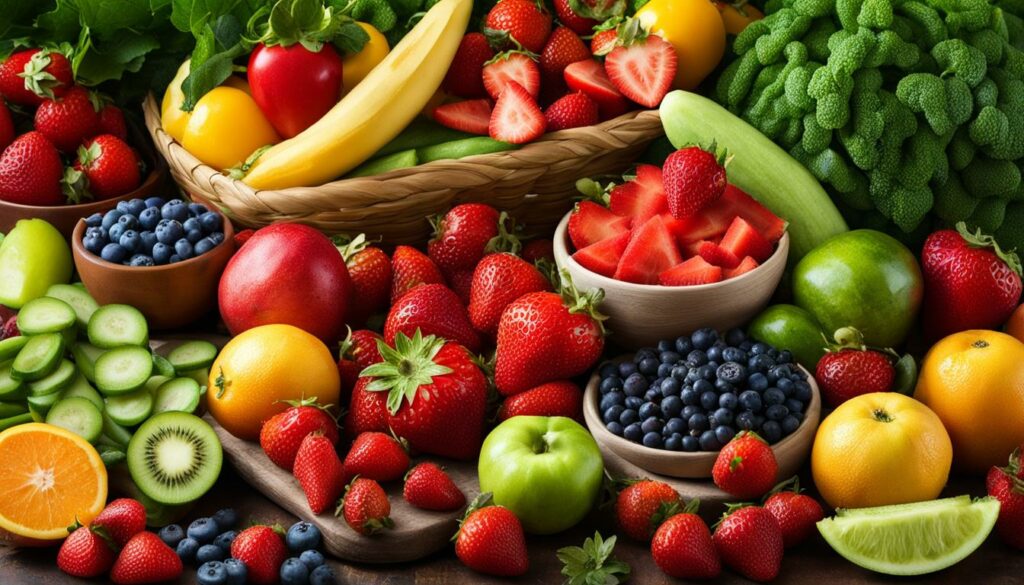
CalFresh benefits can be used to purchase a wide variety of food and food products that are intended for human consumption. However, it’s important to note that there are certain restrictions on what you can buy with CalFresh benefits.
Here is a breakdown of CalFresh eligible food items:
- Fruits and vegetables
- Meat, poultry, and fish
- Dairy products
- Bakery goods and bread
- Cereal and grains
- Canned and packaged foods
- Frozen foods
- Baby food and formula
However, there are also CalFresh non-food items that cannot be purchased with your benefits. These include:
- Toiletries and personal care items
- Alcohol and tobacco products
- Vitamins or medicines
- Hot prepared foods
- Pet food
It’s important to keep in mind that CalFresh benefits are intended to help low-income individuals and families access nutritious food and improve their overall well-being. While there are restrictions on non-food items, CalFresh benefits can help you make healthy food choices and support your household’s nutritional needs.
If you’re interested in growing your own food, CalFresh benefits can also be used to purchase seeds and plants for home gardens. This can be a great way to supplement your diet with fresh produce and save money in the long run.
Married and Having Children: Does It Affect CalFresh Eligibility?

Many individuals in California wonder whether their marital status or having children affects their eligibility for CalFresh. The good news is that being married or having children does not impact your eligibility for CalFresh benefits.
CalFresh eligibility is primarily based on factors such as income and household size, rather than marital status or parental status. The program assesses your household’s financial situation and determines eligibility accordingly.
When applying for CalFresh, the key factors that are taken into consideration include:
- Household Size: The number of people living in your household, including children and dependents, is a significant factor in determining eligibility.
- Income: The total income of all household members is assessed to determine whether you meet the income limits set by the program.
It’s important to note that even if your household income exceeds the CalFresh income limits, you may still be eligible for benefits if you have certain expenses, such as child care or medical costs, that can be deducted from your income calculation.
For a more comprehensive understanding of CalFresh eligibility and income limits, refer to Section 5 of this article.
Overall, the CalFresh program is designed to provide food assistance to eligible individuals and families based on their financial need. It is intended to support those who require assistance with their grocery expenses, regardless of their marital or parental status.
If you have further questions about CalFresh eligibility or the application process, refer to the relevant sections in this article or contact your local CalFresh office for personalized assistance.
CalFresh and Other Public Assistance Programs
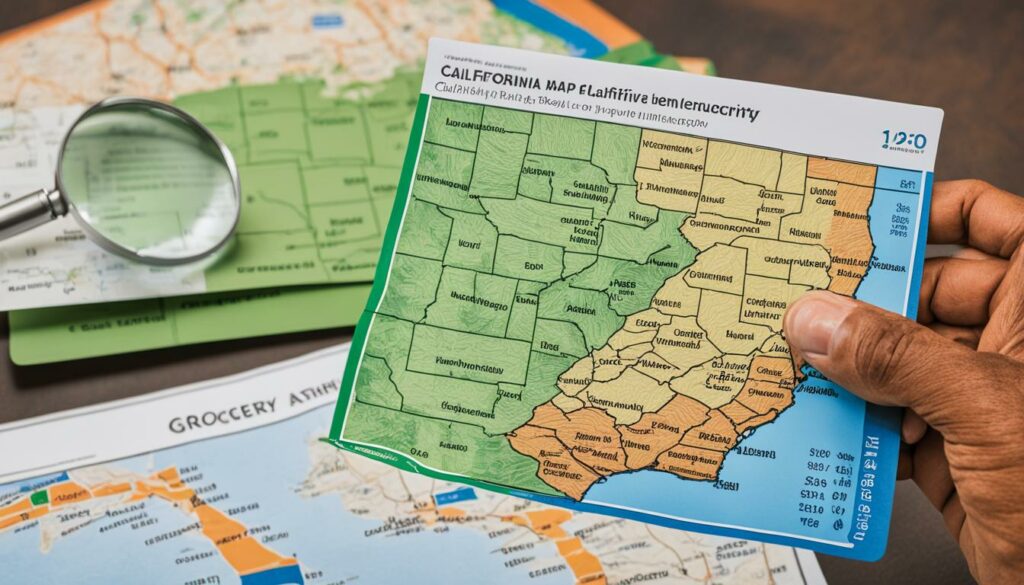
In California, many CalFresh households also receive cash aid from other public assistance programs. This additional support helps individuals and families meet their basic needs and improve their overall well-being. However, it’s important to understand the restrictions on participating simultaneously in certain programs to make the most out of the available resources.
“Access to multiple public assistance programs ensures comprehensive support for vulnerable populations, addressing their diverse needs and promoting self-sufficiency.”
While CalFresh provides food assistance to eligible households, cash aid programs like CalWORKs offer financial support to those with low incomes, including families with children. The combination of these programs allows individuals and families to address both their food and financial needs more effectively.
Restrictions on Participating in Multiple Programs
Although many individuals may be eligible for both CalFresh and cash aid programs, certain restrictions apply to prevent duplication of benefits. It is essential to understand these restrictions to ensure full compliance with program regulations and optimize the assistance received.
1. Simultaneous participation: While individuals can receive benefits from multiple public assistance programs, participating simultaneously in the CalFresh Program and the Emergency Food Assistance Program is not allowed.
2. Income and eligibility criteria: Each program has its own set of income and eligibility criteria to determine an individual’s or household’s qualification. It’s crucial to meet the specific requirements of each program to receive the respective benefits.
3. Reporting changes: Any changes in income, household composition, or other relevant factors must be reported promptly to the appropriate program offices. Failure to report changes accurately may lead to ineligible benefits or potential penalties.
Collaborative Efforts for Holistic Support
Public assistance programs in California work collaboratively to ensure individuals and families have access to the resources they need. By combining the benefits of CalFresh and cash aid programs, the state aims to provide holistic support that addresses both immediate and long-term needs.
As illustrated in the table below, these programs offer various forms of assistance, from food subsidies to financial aid, contributing to a comprehensive safety net for vulnerable Californians.
| Program | Services Provided |
|---|---|
| CalFresh | Food assistance through EBT cards, access to farmers’ markets, and nutrition education programs. |
| CalWORKs | Financial aid, job training, and child care services to promote economic self-sufficiency. |
| General Relief (GR) | Short-term financial assistance for individuals with no minor dependents. |
| Medi-Cal | Health coverage for low-income individuals and families, including preventive care and emergency services. |
These various programs collaborate to streamline services, simplify the application process, and promote access to the most suitable assistance for individuals and families in need.
By leveraging the available resources and understanding the restrictions on participation, households can take full advantage of the support offered by public assistance programs in California. This collaborative approach ensures that vulnerable individuals have the necessary tools to improve their quality of life and progress towards self-sufficiency.
Applying for CalFresh in Contra Costa County
Contra Costa County offers multiple convenient ways for residents to apply for CalFresh benefits. Whether you prefer a digital approach or in-person assistance, the county ensures accessible options for all applicants.
If you’re comfortable with online applications, you can apply for CalFresh through the official website of Contra Costa County. Just fill out the necessary information, submit the required documents electronically, and await a response.
Prefer a more personal touch? You can also apply by phone, allowing you to speak with a knowledgeable representative who can guide you through the application process and answer any questions you may have.
For those who prefer traditional methods, fax and mail applications are also accepted in Contra Costa County. Simply download the application form from the county’s website, fill it out, and follow the instructions provided to send it via fax or mail.
Applying In-Person
Contra Costa County understands the importance of face-to-face assistance, especially for individuals who may require additional support or have specific questions. To cater to such needs, the county has designated district office locations where residents can apply for CalFresh in person.
By visiting one of these district offices, you’ll have the opportunity to receive personalized assistance from knowledgeable staff members who can guide you through the application process, help you gather required documents, and answer any questions or concerns you may have.
When visiting a district office, be sure to bring all necessary documentation to ensure a smooth and efficient application process. This includes proof of identity, income verification, residency documentation, and other relevant documentation that may be requested.
Remember, at a minimum, you’ll need to provide the following information to complete your CalFresh application:
- Applicant’s name
- Household’s address
- Signature from the head of household or authorized representative
By applying in Contra Costa County, you can take advantage of the various application options available to ensure a seamless and efficient process. Whether online, by phone, fax, mail, or in person, the county prioritizes accessibility and aims to make the application experience as convenient as possible for all residents.
Contra Costa County CalFresh Application Methods
| Application Method | Description |
|---|---|
| Online Application | Electronic application submitted through the official website of Contra Costa County. |
| Phone Application | Application completed over the phone with assistance from a representative. |
| Fax Application | Application form completed and submitted via fax. |
| Mail Application | Application form completed and submitted via mail. |
| In-Person Application | Application submitted at designated district office locations in Contra Costa County. |
Conclusion
Understanding the ins and outs of food assistance programs in California, particularly the California food stamps benefits through the CalFresh program, is crucial for managing your household’s well-being. By familiarizing yourself with the eligibility criteria, income limits, and authorized locations where you can use your EBT card, you can make the most of this valuable resource.
Knowing the amount of food stamps you can receive in California plays a vital role in budgeting and ensuring that your family’s nutritional needs are met. The EBT system, facilitated by the Golden State Advantage EBT card, allows recipients to access their benefits conveniently and securely.
Whether you are a single individual or have a family, determining your eligibility for food stamps and being aware of the monthly maximum allotments is essential. Remember, CalFresh benefits can be used to purchase most food products intended for human consumption at authorized retailers, including participating farmers’ markets, where you may even benefit from market match incentives.
Make the most of the food assistance programs available in California. Take advantage of the resources and support offered by CalFresh to create a healthier and more nourishing future for yourself and your loved ones.
FAQ
How much food stamps will I get in California?
The amount of food stamps you will receive in California, also known as CalFresh benefits, depends on factors such as household size and income. As of October 1, 2023, the maximum monthly allotment for a one-person household is $291, and for a four-person household, it is $973.
How can I check my EBT account balance and transaction history?
You can check the balance of your EBT account and view transaction history by visiting the EBT website or using the EBT mobile app. These tools allow you to keep track of your food stamp benefits and ensure they are being used correctly.
Where can I use my EBT card in California?
Your EBT card can be used at authorized retailers, including grocery stores, supermarkets, and farmers’ markets. Some farmers’ markets also offer market match incentives, allowing you to stretch your food stamp benefits further.
How can I protect my EBT card and personal information?
It’s important to protect your EBT card and personal information from theft or misuse. Remember, the county or state will never call or text you asking for your EBT card number or PIN. If you suspect your benefits have been stolen, contact customer service immediately and avoid sharing personal information with anyone.
What are the eligibility and income limits for CalFresh in California?
CalFresh eligibility is determined based on factors such as household size and income. Resource limits and gross monthly income limits also apply. To determine your specific eligibility and income limits, it is best to contact your local CalFresh office.
What can I buy with CalFresh benefits?
CalFresh benefits can be used to purchase any food or food product intended for human consumption. However, they cannot be used for hot foods, non-food items like toiletries, alcohol, tobacco, vitamins or medicines, or pet food. You can use CalFresh benefits to buy seeds and plants for growing food in home gardens.
Does being married or having children affect CalFresh eligibility in California?
No, being married or having children does not affect your eligibility for CalFresh in California. Eligibility is based on factors like income and household size, regardless of marital status or parental status.
Can I participate in both the CalFresh Program and the Emergency Food Assistance Program?
There are restrictions on participating simultaneously in the CalFresh Program and the Emergency Food Assistance Program. It is best to contact your local social services office for more information on the specific rules and requirements.
How can I apply for CalFresh in Contra Costa County?
In Contra Costa County, there are multiple ways to apply for CalFresh, including online applications, phone applications, fax applications, and mailing applications. The county provides several district office locations where you can apply in person. Minimum requirements for filing a CalFresh application include the applicant’s name, household’s address, and a signature from the head of household or authorized representative.
What are the food assistance programs available in California?
In California, food stamp benefits are distributed through the Electronic Benefit Transfer (EBT) system. Some of the food assistance programs include CalFresh and CalWORKs. These programs provide eligible individuals and families with funds to purchase food and meet their nutritional needs.
Source Links
- https://www.cdss.ca.gov/ebt-card
- https://ehsd.org/benefits/calfresh-formerly-known-as-food-stamps/calfresh-frequently-asked-questions/
- https://calfresh.guide/how-much-in-calfresh-benefits-a-household-gets-each-month/
See also:
Leave a Reply